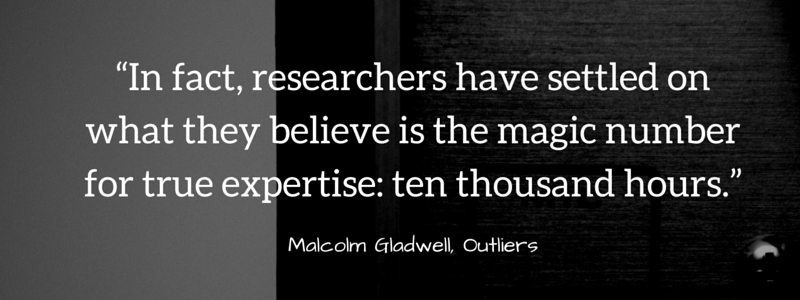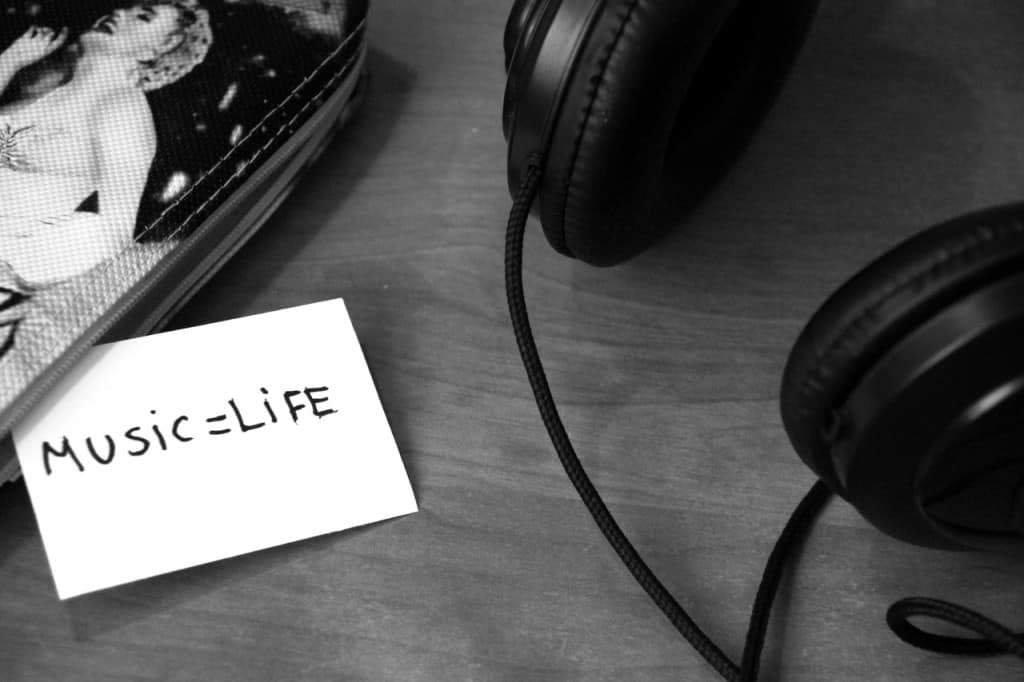Despite what outsiders say, electronic music production is hard.
Yes, it’s easier than it used to be. There’s no need to buy expensive gear or rent out a studio to use the console.
But the fact that it’s creative work hasn’t changed. And creative work, regardless of what field it’s in, is difficult.
To succeed at difficult work, you need certain skills.
So, what skills should a music producer have? What skills should YOU have?
The way I see it, there are five core skills that successful music producers possess. Let’s have a look at them.
Related post: The 5 Stages of an Electronic Music Producer (and How to Progress Effectively Through Them)
Free eBook: How to Make Electronic Music 🎛️📖
Download our free eBook for new producers and get started on the right foot. If you’re not sure where to go—this book will give you the roadmap 👇
Skill 1: Patience

I often get emails from producers asking how they can attain stardom as quickly as possible. It’s hard to write a response to these emails because they’re starting with a flawed assumption…
…that you can become a great producer quickly.
It takes a hell of a long time to make great music. You need to learn a range of skills, acquire knowledge, and practice A LOT. If you’re not patient, you’ll give up. It’s as simple as that.
But patience is beneficial in more ways than one:
- Great songs take time to make – without patience, you’re likely to cut corners.
- Building an audience takes time.
- Overcoming creative ruts can take a lot of time.
- Label release schedules are horrendous, you need to patience to stay sane.
Having patience does not mean going slow. It doesn’t mean you lower your drive (see Skill 5) or ignore maximising the time you have to produce.
Having patience means being content with the fact that even though you’re working hard and fast, it’s still going to take time. You’re not going to reach satisfaction within a number of weeks or months.
Recommended reading: How to Set Goals as a Producer – 3 Steps to Success
How to improve your patience:
- Force yourself to think long term by setting goals far out in the future.
- Focus on consistency over intensity. Realize that pulling all-nighters to finish songs is impatient thinking and ultimately detrimental compared to a few hours every day.
- Study the success path of artists you admire. Look at how long it took them to gain traction and use it to recalibrate expectations.
Skill 2: Focus

Being able to make a track from start to finish on your laptop is a brilliant thing, but it has its drawbacks.
We’re more easily distracted. Having Facebook open on another screen is commonplace for many producers, not to mention those desktop notifications that pop up at the worst of times.
And if you think these kind of distractions aren’t bad – I’ve got some bad news for you. They are. The science doesn’t lie.
In his recent book Deep Work, Cal Newport suggests that in the “new economy,” three groups will have a serious advantage:
- Those who work well and creatively with intelligent machines.
- Those who have access to capital.
- Those who are the best at what they do.
He then points out that there are two core skills for thriving in this new economy:
- The ability to quickly master hard things.
- The ability to produce at an elite level, in terms of both quality and speed.
That last one? It requires intense focus. To learn and progress as an artist, you need to be able to focus.
Successful music producers have nailed this skill. They can sit down for three hours straight and focus on one thing–music.
Can you do the same?
Recommended: Why Most Producers Give Up
How to improve focus:
- Time-block production sessions in your calendar. Set an objective/goal for each one.
- Remove ALL potential distractions: turn off your phone, internet connection, make a Do Not Disturb sign and chuck it on your door. Do whatever it takes.
- If you really suck at focusing, start small. Commit to 30 minutes instead of three hours and build your way up over time.
- Make music in the morning when your willpower is at its highest.
Skill 3: Attention to detail

Perfectionism is a curse, but attention to detail is a must.
Sound like a contradiction? It’s not.
Perfectionism is the obsessive desire to reach something unattainable. “Perfect,” is theoretical, and impossible.
Attention to detail, on the other hand, is the ability to listen closely to your work and point out key areas of improvement.
It’s the slight adjustment in velocity for one note in a piano piece; the 1dB notch on an EQ; the slight pan to the left.
It’s doing things that the average listener won’t notice unless they weren’t done, and even then, they wouldn’t be able to put their finger on what was missing.
It’s worth noting that attention to detail is predicated on patience and focus. Paying attention to, and fixing the minor things is a difficult process.
How to improve attention to detail:
- Use lists. Write down everything you think you can improve, and then slowly tick things off the list.
- Reference professionally made tracks – work out what’s missing.
- Make new versions/iterations of your song, improving on different parts each time.
Skill 4: Objective Self-Assessment

The ability to objectively critique your work is an incredibly hard skill to develop because it’s so emotionally tough.
If you spend 3 hours writing a melody, you’re more inclined to think that melody is a good one, even if it’s not.
Because to tell yourself that the melody isn’t really good at all is tough. It means you spent 3 hours on nothing.
The successful producer knows how emotionally challenging it can be to objectively critique his own work, yet he does it anyway.
He knows that becoming biased toward or against his work is close to inevitable, and sets systems in place so that he can do it regardless of how he feels.
How to improve objective self-assessment:
- Sleep on your work. Before you attempt to critique your music – give it a day or two.
- Ask for the opinion of others. As you gain feedback from a wide circle of people, you’ll begin to see where your biases or insecurities lie. Once you know what they are, you can address them.
- Reference other tracks. If your low-end sounds terrible compared to the low-end of that track produced by Axwell, it’s because your low-end IS terrible.
Skill 5: Never-ending Drive

What is never-ending drive? It’s an obsessive compulsion to work on music during every waking hour. It keeps you up at night – drilling new ideas into your head while you’re trying to rest.
It’s something that stems directly from an intense passion for music, and it’s something that every successful producer has.
I know what you’re thinking – Sam, I’m SUPER passionate about music but I find it hard to sit down and produce sometimes!
Don’t worry. While passion is typically required for this type of never-ending drive, it only provides the potential for it.
This simply means you’re going to need to develop that drive, which may take some time, but is completely possible.
Free eBook: How to Make Electronic Music 🎛️📖
Download our free eBook for new producers and get started on the right foot. If you’re not sure where to go—this book will give you the roadmap 👇
How to develop drive:
- Set MASSIVE goals. Read The Magic of Thinking Big for further explanation (most people think small and lower their drive as a result).
- Make a conscious effort to get inspired every day. Listen to new music. Watch interviews with other artists. Learn from tutorials.
- Create routines and habits that work even when you don’t want to.
Want some further reading? Check out what makes some producers great, and other not so great.

